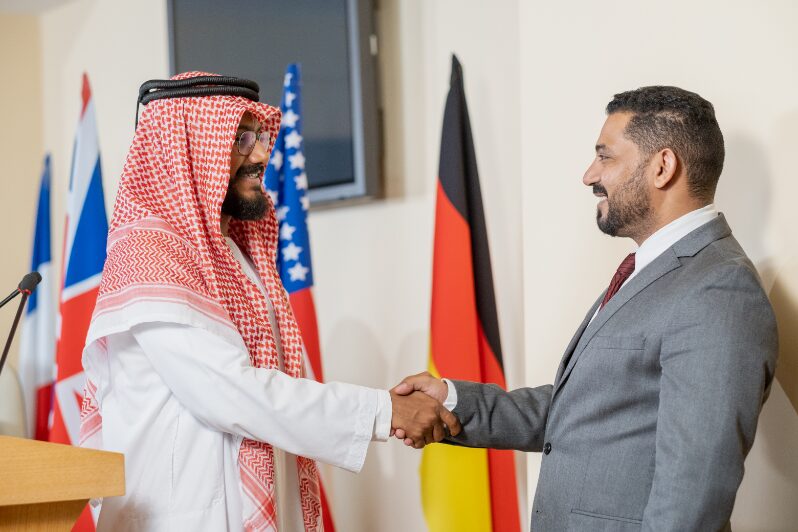According to the World Intellectual Property Organization (WIPO), the United Arab Emirates has signed the Madrid Protocol, which will take effect on December 28, 2021. The UAE joins the International trademark registration system as a result of this. The international System allows an applicant to acquire trademark protection in the UAE and other member nations through the World Intellectual Property Organization (WIPO) without registering national trademarks or paying local agents. It will lower expenses and administrative burdens for foreign applicants, allowing them to export goods and services overseas and develop their business more readily.
Introduction
The United Arab Emirates’ government submitted their instrument of accession to the Madrid Protocol to the Director-General of the World Intellectual Property Organization (WIPO) on September 28, 2021. On December 28, 2021, the Madrid Protocol will come into effect for the UAE. UAE becomes the 109th member of the Madrid System, which currently includes 125 nations, signing the accession agreement. Along with Bahrain and Oman, the UAE joins the Madrid Protocol as the third member of the Gulf Cooperation Council (GCC).
Local trademark owners in the United Arab Emirates will be able to use the Madrid System to protect their trademarks in the 124 territories of the System’s other 108 members beginning December 28, 2021, by filing a single international application and paying a single set of fees.
Due to its simple designation process, foreign firms and trademark owners can use the Madrid System to obtain trademark protection in the United Arab Emirates from December 28, 2021.
What Is Madrid System?
The Madrid System is a simple and affordable way to register and manage trademarks all around the world. To seek protection in up to 125 countries, submit a single application and pay a single set of costs. Through a single centralized system, you may update, renew, or grow your global trademark portfolio.
The Madrid System simplifies registering international trademarks by allowing for a single application and maintenance procedure. With its growing range of online services and tools, the Madrid Registry focuses on providing a simplified, customer-driven experience for users throughout the lifespan of their trademark.
Protection of Brand in the UAE
The accession of the United Arab Emirates strengthens the Madrid System’s position as a critical component of global trademark protection, providing a convenient and cost-effective option for brand owners across the world, including the Middle East. Keep an eye on the Member Profiles Database for additional information on the United Arab Emirates’ trademark laws and procedures.
Furthermore, international applicants can acquire trademark protection by including the UAE in their Madrid Application and other member nations. By using WIPO’s online subsequent designation service, foreign firms and trademark owners can expand their trademark protection through the Madrid System to cover the UAE consumer market starting December 28, 2021. The UAE’s ratification of the Madrid Protocol is a good step toward fostering cross-border commercial cooperation and providing a straightforward and cost-effective option for brand owners worldwide, including in the Middle East.
You may want to know: 6 STEPS OF REGISTERING A TRADEMARK IN UAE
Why Is Madrid System Necessary?
The Madrid Protocol is bringing the globe closer together in terms of economic prospects and the growth of country-to-country IP cooperation. The adoption of the Madrid Protocol by the UAE would assist significant brand owners in the UAE who want to expand their brands to other member nations and local company owners such as SME’s and entrepreneurs who will profit from the Madrid Protocol’s straightforward registration process. Through a single application filed with the UAE IP Office and payment of a single set of official fees, local company owners in the UAE could seek trademark protection in the 124 territories of the System’s other 108 members.
The Madrid method (Madrid Protocol) for international trademark registration is the most widely used worldwide mechanism for simplifying trademark registration in various jurisdictions. This approach has the benefit of allowing trademark protection to be sought through a single administrative process that is also more cost-effective.
You need to know: Process of Trademark Registration for Business Name
Who can use the Madrid System?
An application for international registration (an “international application”) may be made by a natural person or a legal organization who has a genuine and effective industrial or commercial establishment, residence, or nationality with a member of the Madrid Union. The Madrid System is only available to individuals who have that link. An international mark registered under the Madrid System can only be protected inside the Madrid Union.
Benefits of Madrid Protocol
The benefits of adopting the Madrid system do not end with the application; they continue beyond registration. For example, when the ten-year protection period of the mark expires, the renewal can be completed for all countries listed in WIPO by a single electronic filing. Another advantage of registering is that when right holders need to register for a name change, transfer, or change of address, they may do it with a single request and at a meagre cost in all countries.
How Farahat & Co. may assist you?
Trademark agents at Farahat & Co. (FAR) will ensure that all issues are addressed, and a smooth road for trademark administration is created. We offer worldwide trademark registration services in countries around the Middle East. Farahat & co. Trademark experts will provide complete help registering a UAE trademark internationally.
Consult with Farahat and Co. for a more expedited and cost-effective international trademark registration.

